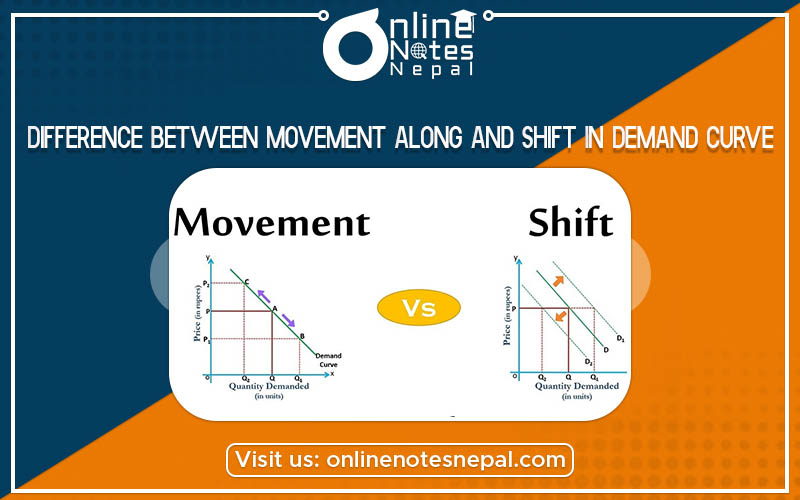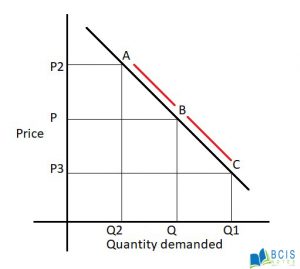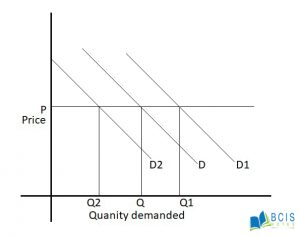Published by: Zaya
Published date: 15 Jun 2021

Movement along the demand curve is defined as the graphical representation of the change in the demand of any commodity due to the change in its own price, other things remaining constant. This condition is known as an extension of demand. It can be graphically shown by the movement from a point to another point of the same demand curve.
A shift in the demand curve occurs when the consumers are willing to purchase more or fewer goods due to the change in the other determinants of demand except for the price. In other words, the change in the demand curve other than the price determinant is said to be the shift in the demand curve. It occurs when the demand for goods and services changes even when the price does not change.
The difference between movement along and shift in the demand curve is shown below:
| Movement along the demand curve | The shift in the demand curve |
|
1 It is due to the change in price determinant of demand.
|
1. It is due to change other than price determinants of demand. |
| 2. It holds the assumption of 'Ceteris Paribus | 2. It does not hold the assumption of 'Ceteris Paribus' |
| 3. Price is only a responsible determinant for movement. | 3. Income, price of related goods, taste/ preferences, etc are the responsible variables for shifting. |
|
4. types:
|
4. types:
|
| 5. It is also called 'change in quantity demand'. | 5. It is also called 'change in demand'. |
 |
 |
| 6. Due to a decrease in the price level, there is a movement from the right to the left along any supply curve. | 6. Due to an increase in the supply of a commodity at a given price, there is a rightward shift in the supply curve. |